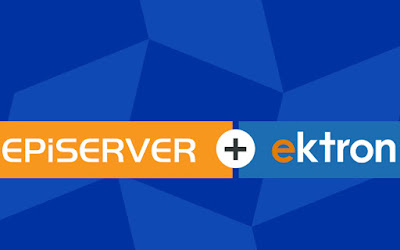SiteCore
is not merely a web content management tool. It would, perhaps, be
more apt to call it a web framework. It has a bottom-up strategy that
helps you create reusable site components in a single repository.
These components can later be selected individually, assembled and
syndicated across multiple websites. SiteCore
CMS
essentially
provides you with enhanced control over web development. It provides
you with quite a powerful framework and enables you to create highly
sophisticated and compelling next generation web solution.
SiteCore’s powerful content management technology has been made easily available to business owners and content editors. SiteCore has a world-class, end-user interface that is powerful, yet simple and intuitive. It has a Microsoft Office 2007 ‘ribbon’ style interface that anybody who is familiar with editing environment will be able to use. Sure, SiteCore is a technical product, but its applications and benefits are hardly complicated. It understands that simple questions need straightforward answers.
Here
are few of the most commonly asked questions about SiteCore, the
answers to which are fairly simple.
Why should you use SiteCore?
As stated earlier, SiteCore is one of the most powerful CMSes available today. It has all the functionalities of traditional content management systems. It also integrates a lot of innovative tools that have made it a ‘one-stop-solution’. Some of the most important benefits of SiteCore are:
- Smooth integration with Microsoft programmes
- Right message via the right channel at the right time
- Easy and fast customization
- Enterprise level security
- Works with databases
- Multilingual
What is so unique about
this CMS?
SiteCore comes with a Digital Marketing System (DMS) and a Customer Engagement Platform (CEP). It has also created a SEO module that shows you how your site’s content will fare on popular search engines. It also enables you to adaptively optimize your content so that it fetches better SEO (search engine optimization) rankings for your site. Mobilizing SiteCore is also fairly easy as the framework automatically scales the content for various screens.
Despite having SiteCore, what tools are you not making the full use of?
One of the main features that SiteCore users often neglect is the DMS (Digital Marketing System) Tasks such as engagement analytics, integrated email marketing, engagement automation, sales automation can give your marketing efforts a solid boost. These features allow businesses to target particular customers with predefined content. By improving the accessibility of relevant content, it helps you to increase conversion rates.
If you have still not decided on a CMS for your website, selecting SiteCore can be a solid decision. In case you are already using SiteCore CMS, consult experienced SiteCore developers to make the best use of the features of this CMS.




